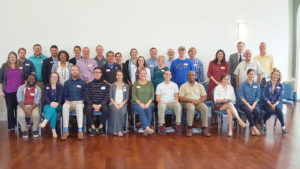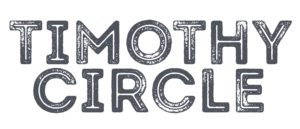Guest post by Jen Burch of United Methodist Camp and Retreat Ministries
Promising young athletes are connected with key coaches, sought out and recruited to excellent teams and sports programs. Promising young scholars’ test scores are shared with top universities, building a pipeline toward future academic success. Who’s responsible for recognizing, “coaching,” and developing promising young disciples of Jesus Christ? What are the key opportunities that will nurture their gifts and build their skills and networks? Could we more intentionally build faithful young Christian leaders through whom God will transform the world? Could churches, camp and retreat ministries, campus ministries, mission agencies, and others collaborate better in their efforts to engage youth and young adults in faith formation? More than 30 United Methodist leaders from these fields of ministry gathered in Dallas to address these questions and look toward a future that more fully embodies a “Culture of Call.”
The Richard and Julia Wilke Institute for Discipleship (IFD) is named for the authors of the Disciple Bible study program that has deeply engaged United Methodists and beyond in small group study, transforming the relationship between faith and scripture for many. More recent endeavors of the Institute include the online platform BeADisciple.com, bringing rich virtual learning experiences to participants wherever they are in the world. As part of its newest project, the Timothy Circle, IFD hosted an intentional time of conversation with United Methodist leaders engaged with youth and young adults, with support from AFTE, A Foundation for Theological Education. Guests were invited to meet at the Perkins School of Theology in Dallas from camp/retreat ministries, campus ministries, and local church ministry with young people. The group was joined by “listeners” from the IFD, UMC Discipleship Ministries, the Perkins School of Theology and Southern Methodist University, the General Board of Higher Education and Ministry (GBHEM), Project Transformation, and several others involved with missions and faith formation opportunities with young people.
 The conversation began on the subject of “call,” coalescing in a collective definition that expanded the meaning far beyond callings to ordained ministry. As a group, participants shared a strong belief in the “priesthood of believers” and the idea that every person can live in the service of God and participate in the transformation of the world through Jesus Christ. The conversation moved to sharing specific ways that various ministry settings may (and do!) cultivate the awareness of a call in those they serve. It was touching to observe the passion and excitement with which participants described their ministries. The ideas that surfaced are too many to list: campus ministries collaborating with mission agencies, connecting students to seminaries, helping to recruit camp/retreat ministry staff, camps that are training worship leaders and Christian educators, service learning retreats that partner camps, campus, and community, internships that connect students back to local churches. There are so many exciting programs and opportunities available to youth and young adults, but how do they learn about them? Who are the connectors?
The conversation began on the subject of “call,” coalescing in a collective definition that expanded the meaning far beyond callings to ordained ministry. As a group, participants shared a strong belief in the “priesthood of believers” and the idea that every person can live in the service of God and participate in the transformation of the world through Jesus Christ. The conversation moved to sharing specific ways that various ministry settings may (and do!) cultivate the awareness of a call in those they serve. It was touching to observe the passion and excitement with which participants described their ministries. The ideas that surfaced are too many to list: campus ministries collaborating with mission agencies, connecting students to seminaries, helping to recruit camp/retreat ministry staff, camps that are training worship leaders and Christian educators, service learning retreats that partner camps, campus, and community, internships that connect students back to local churches. There are so many exciting programs and opportunities available to youth and young adults, but how do they learn about them? Who are the connectors?
It was humbling, at times, to realize the untapped potential for collaboration among ministry areas. Camps, campus, and churches often operate with limited resources and fall into functioning as “silos,” disconnected from sisters and brothers who share many of the same goals. The metaphor of “passing the baton” as in a relay race became a key touchpoint as we realized that the “handoff” is often a place where the metaphorical baton gets dropped. How are camps & retreats receiving youth group members, Sunday school kids, etc.? How do camp/retreat leaders connect young people coming “down from the mountain” from our experience and re-entering their church, family, and community? How do churches and camps hand off the metaphorical baton when a young person heads off to college? How are we connecting promising disciples with the next step in their path of faith formation? The experience of the Call Cultivation conversation deepened our commitment to working better together. Keep an eye out in your region for extensions of the conversation. Or start your own! How well is your ministry aligned with others in the local church, on campus, and in missions and community? Does your Annual Conference have a Vocational Discernment Coordinator?
 The IFD’s new Timothy Circle is an emerging resource that aims to connect young people with mentors and opportunities oriented toward this goal. The project includes a searchable online database (going live in 2018) of resources and opportunities for students exploring and clarifying their call. It features training and community for local church mentors engaged in helping young people on that journey. Registration is already open for the Mentor Training courses through BeADisciple.com in early 2018. The different aspects of the Timothy Circle will come together through a phone app that will act as a portal to connect young people (and those who support them) to community, resources, and opportunity listings. Camp and retreat ministries will be encouraged to participate in the Timothy Circle by listing leadership training programs, internships, mission/service experiences, and other faith formation and call-cultivation opportunities. UMCRM leaders can also be key points of connection and avenues for communication and collaboration. Let’s become better handlers of “the baton” of young disciples, running with intention the race that’s before us and practicing our handoff skills so no one gets dropped along the way.
The IFD’s new Timothy Circle is an emerging resource that aims to connect young people with mentors and opportunities oriented toward this goal. The project includes a searchable online database (going live in 2018) of resources and opportunities for students exploring and clarifying their call. It features training and community for local church mentors engaged in helping young people on that journey. Registration is already open for the Mentor Training courses through BeADisciple.com in early 2018. The different aspects of the Timothy Circle will come together through a phone app that will act as a portal to connect young people (and those who support them) to community, resources, and opportunity listings. Camp and retreat ministries will be encouraged to participate in the Timothy Circle by listing leadership training programs, internships, mission/service experiences, and other faith formation and call-cultivation opportunities. UMCRM leaders can also be key points of connection and avenues for communication and collaboration. Let’s become better handlers of “the baton” of young disciples, running with intention the race that’s before us and practicing our handoff skills so no one gets dropped along the way.
Jen Burch is the part-time Administrator for the United Methodist Camp & Retreat Ministries (UMCRM) Association. A former UMC camp director, she works from her home office near Denver and delights in supporting and connecting the UMCRM community. Full disclosure: Jen has joined the Timothy Circle team to help coordinate organizational partners.
